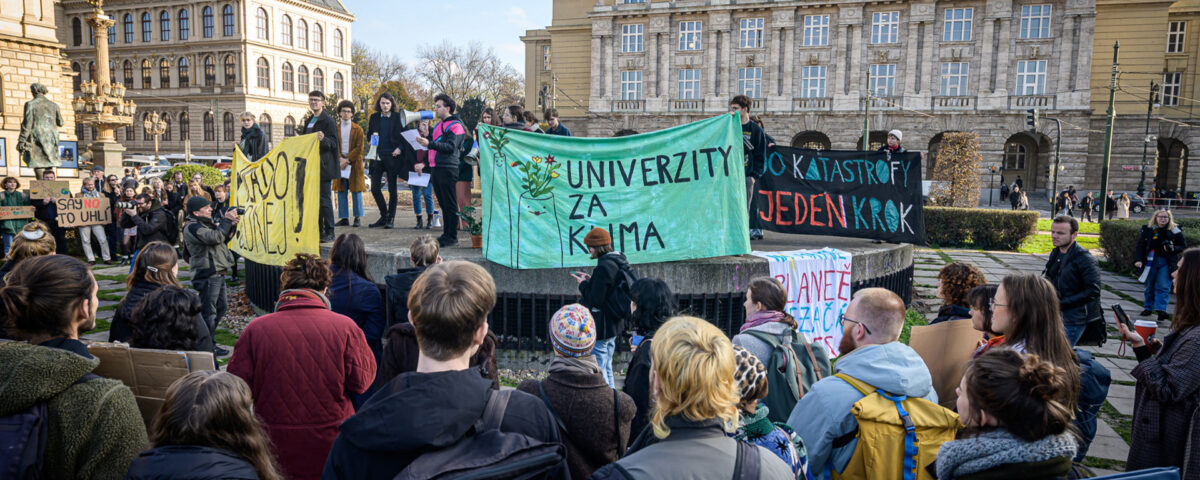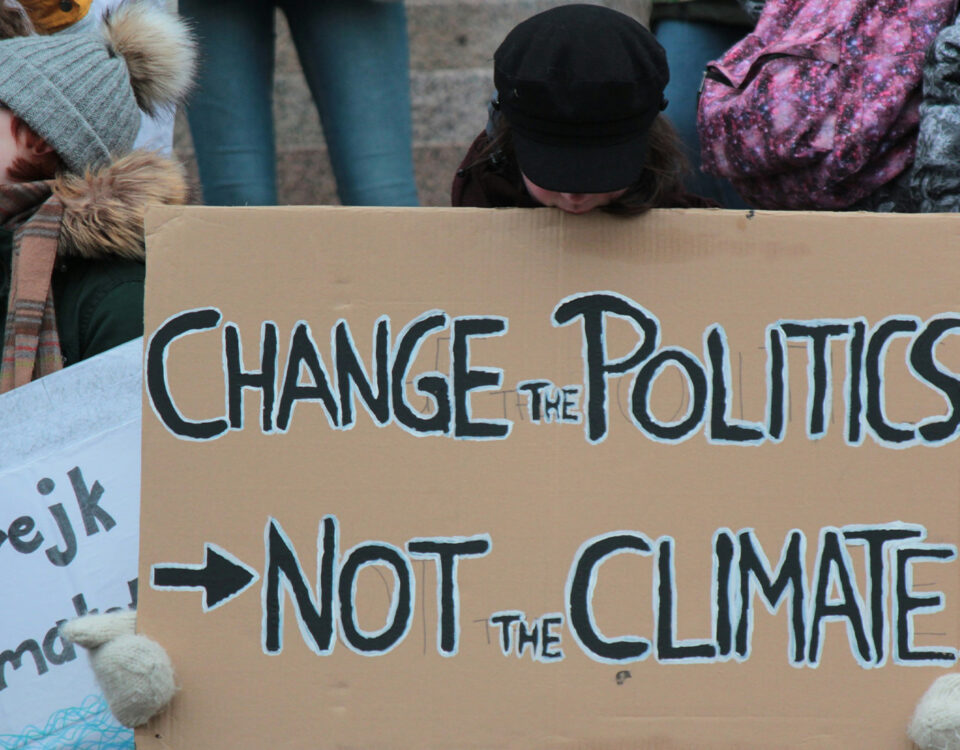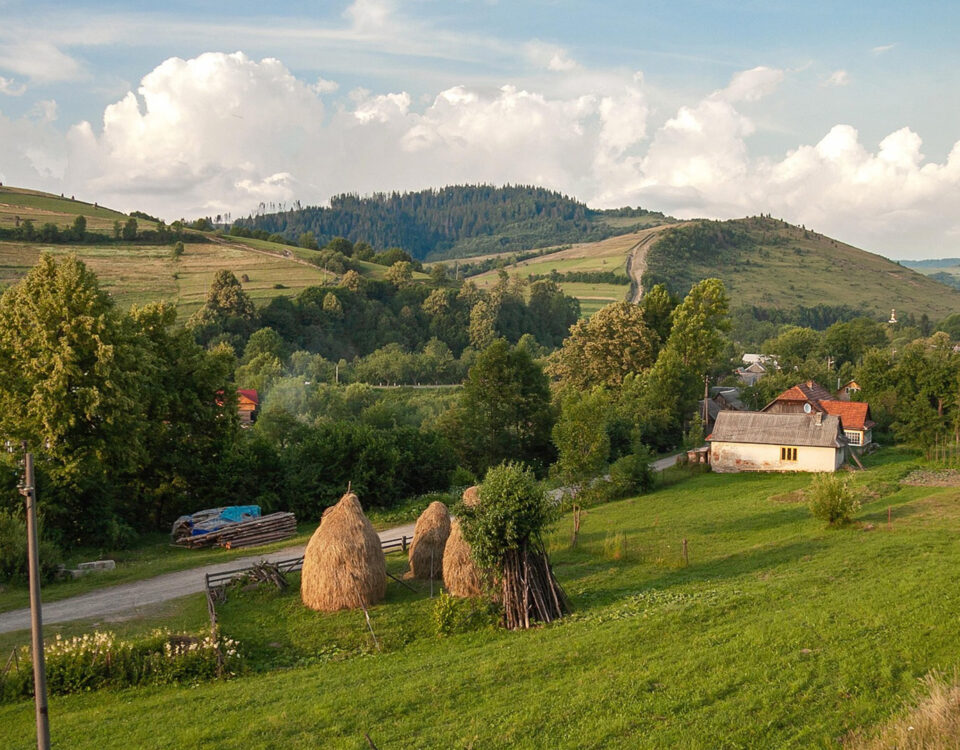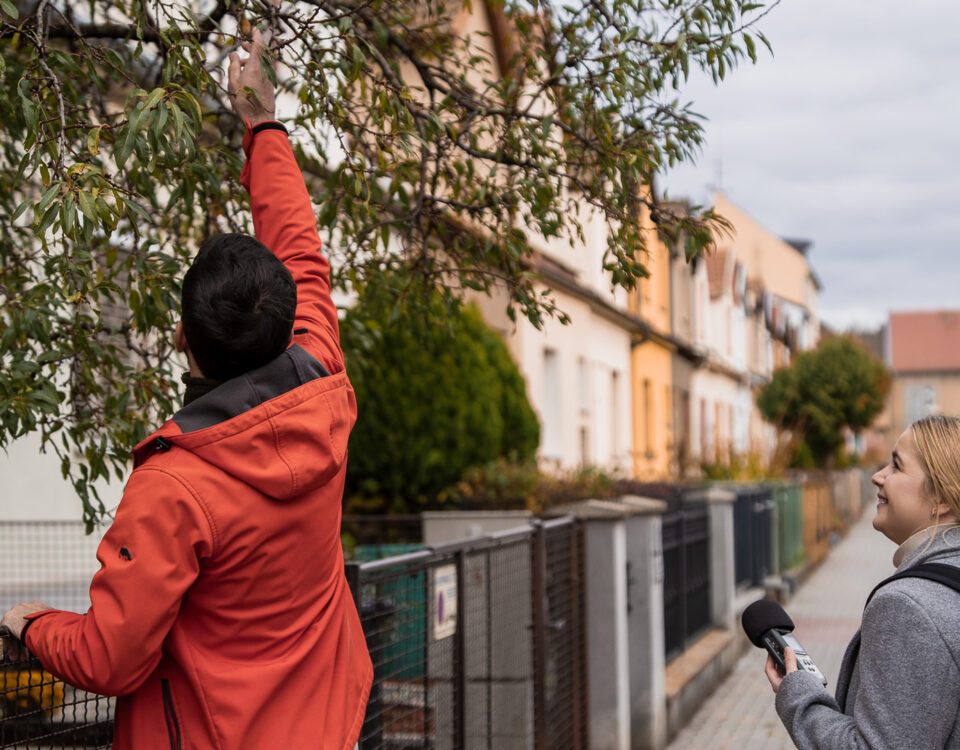
Democracy from the Ground Up: A Brief Report on the Universities for Climate Movement
The Universities for Climate movement, founded in 2019, unites Czech students, academics, and staff in addressing climate change and advocating for social justice. Inspired by Fridays for Future, it focuses on non-violent actions like occupation strikes and campaigns. Decentralized across cities, each chapter upholds shared values like anti-discrimination and solidarity. Highlights include the Anti-Fossil Spring campaign and advocating for plant-based meals in university cafeterias. This grassroots initiative challenges slow political responses, empowering collective action for needed systemic change.
Authorship/Creative Team
Youth board Czech team;
Olga Wawracz
Sources
Photos:
Univerzity za klima collective
Journey of a plastic bottle
The Universities for Climate movement brings together students, academic community members, and staff who care deeply about addressing climate change. In November 2019, 2022, 2023, and 2024, its members filled the spaces of numerous Czech universities with their programs, presence, and occupation strikes. We asked Jana, a member of the Brno chapter, about why the collective was founded, the principles it operates on, and its core values.
Jana, who are the Universities for Climate?
Universities for Climate is a Czech student-led climate movement founded in 2019. Its inception coincided with the emergence of the high school climate movement Fridays for Future in the Czech Republic, inspired by international climate strikes—a parallel that is no coincidence. Fridays for
Future revived the concept of climate strikes (including occupation strikes) in 2019. Many who resonated with this concept soon transitioned from high school to university or were already at university. However, holding Friday strikes, which worked well for high school students since they had to leave classes to protest, didn’t have the same symbolic impact at universities, where many courses don’t meet on Fridays.
Out of a desire to create an independent initiative amplifying the student voice against climate injustice, while making the most of university spaces, a new movement emerged. The first major
action of this new collective took place in the fall of 2019 when Charles University Rector Tomáš Zima was involved in controversial dealings with the credit company Home Credit. This was just one of several instances where he allegedly abused his position for personal gain and favouritism. In
response, students blocked the rector's office, occupying it for 14 days with the demand for his resignation.
Universities for Climate originated in Prague but has since expanded to several other Czech cities.
Shortly after its founding, the COVID-19 pandemic posed significant challenges, limiting the
movement’s activities for a period. The next major occupation strike took place in 2022, this time with
efforts to involve other cities and university students across the country. At that time, local chapters had not yet been established, so early strikes outside Prague were largely organized by individuals already active in other movements, such as Fridays for Future and Limity jsme my (We Are the Limits).
How did you get involved in the movement?
In 2022, I was contacted by a member of the Prague Universities for Climate. He messaged me saying something like, “Hey, we’re organizing an occupation strike at the university—want to join?” So, I went. It was a bit strange; we all knew each other in some way, but we weren’t yet a cohesive group.
That happened only after the strike. And I see a problem in that because, at first, a lot of people got involved, but the movement later emptied out. People returned to their original groups, and suddenly there were only a few of us left, with almost no activity for a year.
So, do Universities for Climate function as a unified whole, or is the movement fragmented?
At the national level, Universities for Climate is quite decentralized—each city chapter manages its own activities independently and doesn’t necessarily interact with the others. What connects all the chapters, however, are the movement’s core values and its internal operating guidelines. In larger
cities, local chapters also have smaller working groups focused on specific areas like Process, Communication, Media, Narrative, and Member Care. In smaller cities, where there are naturally
fewer people, those involved often take on multiple roles and handle “a bit of everything.”
It’s important for us to rotate roles because if someone holds a position for too long, it can create an imbalance of power, knowledge, and experience. So, we benefit from this rotation. I’ll soon be stepping away from the Social Media and Process groups, but I’m interested in joining the Buddy group and am still enjoying the Media group.
Is it purely a climate movement, or do you address other issues as well?
Universities for Climate is both a climate and social justice movement. We reject classism, or discrimination based on economic status because the climate crisis has a clear class dimension, disproportionately impacting poorer communities. This stance is outlined in our Strike Code—a
document establishing the movement's values and guidelines for strikes. The movement operates on principles of nonviolence and advocates not only for climate justice but also for solidarity with working people. Racism, homophobia, sexism, ableism, or any form of discriminatory hatred or
violence is not tolerated at Universities for Climate events.
Alongside strikes, we organize various campaign actions. For example, during the “Anti-Fossil Spring” campaign, students camped overnight for several nights outside the Ministry of Industry and Trade. The campaign featured lectures and a happening on campus where vegan food was shared for
donations, and people could sign a petition for more sustainable dining options. In Brno, we also launched a campaign for sustainable university cafeterias, advocating for the inclusion of at least one plant-based meal.
Our members regularly participate in retreats and strategic weekends to discuss the movement’s direction. Among other events, the Strike Dance in Prague stands out. This was a dance party featuring judges, hosts, and a couple’s competition—a kind of StarDance, but without sexism or bad jokes.
Why Do We Need Universities for Climate?
Why do we need non-hierarchical grassroots movements—whether in high schools, universities, or
workplaces? Because we need a counterbalance to political representation that doesn’t always respond
to urgent challenges as it should. A grassroots movement, built from the ground up by people who are
unpaid (or uncompromised) and doing it out of genuine commitment, gives people strength.
It’s great when individuals engage in local politics or plant trees on a personal level, but in
movements, power is concentrated and shared—without movements, no one would listen to us! If a
few individuals send an angry letter to a minister, he might give a polite response at best, but if we’re
camped out in tents outside his office in numbers, he can’t afford to ignore us.
![]()







